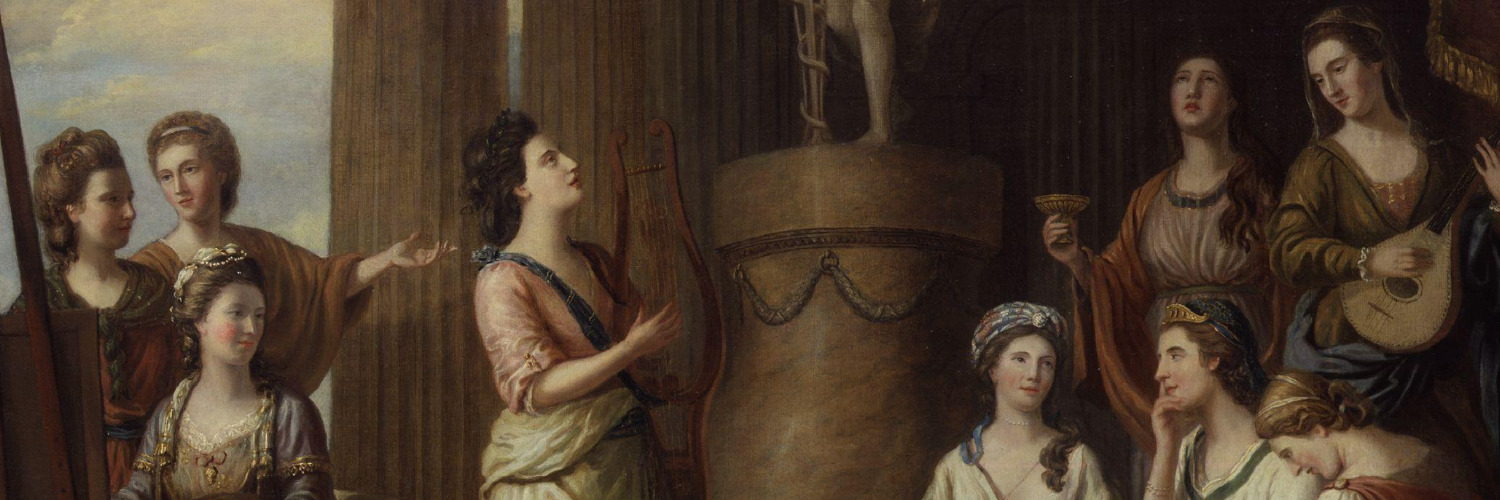- Physical form: One sheet folded into 2 leaves (18.5 x 22.6 cm)
- Cover: Mrs Withering / the Larches / Birmingham
- PM: 7 o’Clock / FE 26 / [x]812 N.T.
A F E / 2[x] / 12
[a 3rd PM is partly visible:] 1812 - WM: W TURNER & SON
- Endorsement: Answered April 24th
- SM: Misc MS 4374
Thanks my dear Mrs Withering more than I can easily express for your kind letter, for it has set my heart at ease about you & given me the truly welcome tidings of your recovered health—To say truth I had been very uneasy about you, first expecting impatiently news I had been taught to expect, & afterwards, when I understood the termination which had been supposed was no ^longer^ looked for, in still greater anxiety for your general health—I am very happy that you can give me so good an account of it, & indeed my dear Mrs Withering to[?]xxering your dxxxx fxxxe & xxxxxxxxx you may well, as you rightly observe, be satisfied & your friends may be satisfied with the absence of a blessing which could [written over “cannot”] ^not [one word]^ be looked for without such hazard
——I am glad you are got to your own seat, the Larches, & hope as the Spring comes on you will be able fully to enjoy it. We are all pretty well here. My niece is just returned from Edinburgh,
where she has been spending the winter with that
[fol 1v] charming family, the Fletcher’s ^Miss F. is come home, & come out as they call it^ & from the variety of company she
has seen there, has brought home a number of anecdotes which she relates with her usual humour & vivacity—I understand Mrs Hamilton is about some new work, I believe relative to education.
I wonder whether any family has been better educated for all that has been written on that subject. If I were to look for a family where a good state of education ^prevailed^ I should seek it where there was good sense a knowledge of the world as it really is, & no very peculiar opinions—& such indeed is the spirit of Mrs Hamilton’s works & they are good because there is not much of system in them—I trust the next generation may see our poor better educated. Is it not a disgrace to so wealthy a nation that a much greater proportion of the population of Iceland can read than of this country
— I was yesterday in the company of a gentleman who has making [sic] a tour in Greece.
We were amused by hearing that many of our books & amongst them the Vicar of Wakefield are translated into modern Greek, & that Homer himself is translated into modern Greek and (what an exclamation Mr Withering makes) in rhyme
—The vale of Tempe he was charmed with, but the fields of Enna (for he went to Sicily) have no flowers, I
suppose
[fol 2r] suppose Proserpina gatherd them all— You have by this time I doubt not read & admired Miss Baillie’s new Vol of Plays. Her fine mind, her poetical genius, her delicate touches of all the chaste sensibilities of the heart are equally conspicuous in this as in all her former works. I think the Beacon stands the best chance of being acted of any in this Vol., for the passion of fear is not so pleasing a one for delineation as many others
—Of Miss Seward’s letters I think exactly as you do. She had certainly a great deal of real talent, pity it was so disgraced by affectation. What hurts one most in the letters is the idea that on occasions the most affecting, as the illness of her father the death of her Sister, she took copies of her letters with a view to print them. I am told however that they have been retouched & burnished so as to be pretty different from those her correspondents really recieved
—many personalities also hav[e] been suppressed. Mr Edgeworth, I understand, when he heard of the intended publication wrote a letter threatening vengeance if his name was introduced in any way.
Accordingly it is not, tho I have not no doubt it was often to be found in the originals with many a bitter comment— I do not think Scott’s last publication worthy of him tho evidently it could be written by none but a Poet.
The great fault is that the beginning has nothing to do with the end. If he wanted to celebrate the battles of Busaca & Albuera he should have written a Campaign as Addison did,
& not have begun with Don Rhoderic & his vision—You ask me if I like Campbell’s Gertrude.
It is an elaborate Poem, beautiful verse & perhaps satisfies better on the second reading than the first, for the
story
[fol 2v] story is rather confused—I am afraid my letter will be so, for I have written it at several different times, being often oppressed with such languor that I could do nothing— I suppose you know that Mr Belsham removes to London
—I am sorry for Miss Belsham, for she, I know, will regret leaving Hackney, & I am somewhat sorry for myself, for in Summer at
[on address panel]
least I could get at them rather easier than I shall at Essex street. Pray give my best Compts to Mr Withering—How delighted I am in the contemplation of your domestic happiness. I heard somebody say you had it in contemplation to come to London this spring . I wish it may be true, because I think you will not forget Newington on account of the pleasure that seeing you both will give to your affectionate AL Barbauld
If I had any opportunity of conveyance I would have sent you my Poem,
but you have probably seen it by this time—

